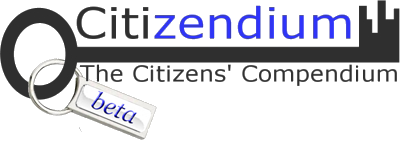User:Pat Palmer/My Sandbox
This is where I work on pre-drafts and just try stuff out
I had a draft of Computer at User:Pat_Palmer/Computer.
| Discussion Archives |
| Archive 1, 4-9-07: here |
| Archive 2, date?: here |
| To Do List |
| placeholder |
| placeholder |
Strowger switch and telephone dialing (~1920)
- Telephone automation systems, called "switches" or switchboards, were likely among the first electromechanical devices to implement a primitive form of computer-like memory, whereby a number is stored by the setting of relays, or the operation of similar equipment. The earliest form of switching memory was the Strowger switch, developed by an independent American inventor decades before Bell Laboratories invented an equivalent technology. Strowger switches completed an additional segment of a phone call's connection each time a digit was dialed; in this case, the entire telephone system was the memory. Later switchboards (1960's generation) used general-purpose computers and completely stored all digits of the dialed number in a register before making a routing decision based on a host of complex factors. Call connections were made "all at once" after running a program that analyzed the dialed number. + Telephone automation systems, called "switches" or switchboards, were likely among the first electromechanical devices to implement a primitive form of computer-like memory, whereby a number is stored by the setting of relays, or the operation of similar equipment. The earliest form of switching memory was the Strowger switch, developed by an independent American inventor decades before Bell Laboratories invented an equivalent technology. Strowger switches completed an additional segment of a phone call's connection each time a digit was dialed; in this case, the entire telephone system was the memory. Strowger eliminated the need for intervention by a human operation when placing a phone call (in consumer terms, he "invented the dial telephone"). Later switchboards (1960's generation) used general-purpose computers and completely stored all digits of the dialed number in a register before making a routing decision based on a host of complex factors. Call connections were made "all at once" after running a program that analyzed the dialed number.
Discovery of "switching algebra" leading to logic gate designs (1938)
Claude Shannon (1916-2001) made a critical step enabling hardware design of a computer in his 1938 MIT master's thesis[1] on the use of Boole's algebra to analyse and optimise relay switching circuits. Shannon associated boolean algebra, a kind of mathematical system that had been known for centuries, with the design of logic gates in digital hardware[2], calling boolean algebra "switching algebra" in the context of digital hardware design. Shannon also later made seminal contributions towards the burgeoning field of information theory.
References
- ↑ ``A Symbolic Analysis of Relay and Switching Circuits, MIT master's thesis published in T.A.I.E.E. Vol. 57 (1938), pp. 713-723. Transactions American Institute of Electrical Engineers (1938). Retrieved on 2007-05-12.
- ↑ "Claude Shannon" from Professor Ray C. Dougherty's course notes (V61.0003) Communication: Men, Minds, and Machines (Fall, 1996). Microsoft Corporation (1996). Retrieved on 2007-05-12.
Front
|
The Citizendium (sit-ih-ZEN-dee-um), a "citizens' compendium of everything," is an experimental new wiki project started by a co-founder of Wikipedia with the aim of improving on that model by adding "gentle expert oversight" and requiring contributors to use their real names. The pilot project launched in November 2006 and became public in March 2007. As of July 11, 2007, we were working on over 2,300 articles. | ||||||||||||
Workgroup homepages are Φ symbols.
| ||||||||||||
| ||||||||||||
See our work: Browse articles alphabetically Meet our contributors: authors are the folks who write the articles, and discuss them on discussion pages. Some are also expert editors, who nominate articles for approval. Most of our constables, who get new folks on board, and ensure everything runs smoothly, are also authors - and some are editors, too. We work together, learn together, and try to make our dream of a great and free encyclopedia come true - together. | ||||||||||||
